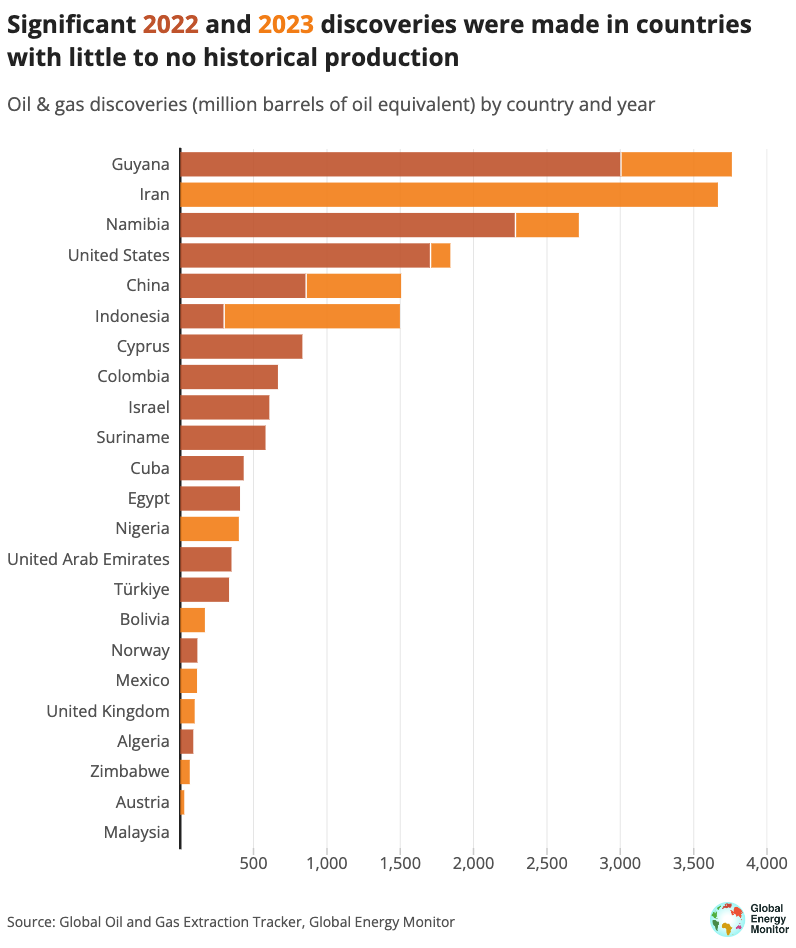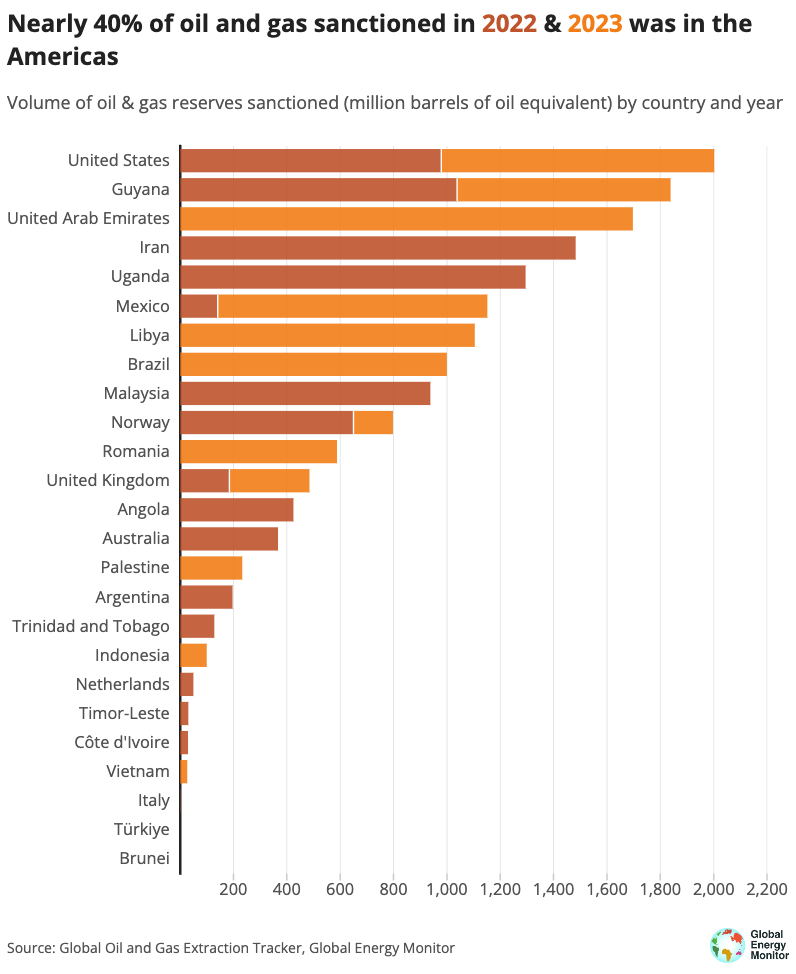Globally last year, oil and gas producers sanctioned and discovered the equivalent of all the proven oil reserves in Europe. They aim to quadruple the amount sanctioned by the end of the decade, despite scientific consensus that any new field developments are incompatible with scenarios to limit temperature increases to 1.5°C, finds a new report from Global Energy Monitor.
Data in the Global Oil and Gas Extraction Tracker show at least 20 fields were approved in 2023, sanctioning the extraction of eight billion barrels of oil equivalent (boe). By the end of the decade, companies are aiming to sanction nearly four times that amount — 31.2 billion boe across 64 additional fields. In addition, 19 new fields containing roughly 7.7 boe were discovered in 2023.

The report finds that, since the International Energy Agency issued a warning in 2021 that no new oil and gas fields were needed to stay within a 1.5°C scenario, oil and gas producers sanctioned a total of at least 16 billion boe across 45 projects and discovered at least 20.3 billion boe across 50 projects.
Despite this contradiction, the oil and gas industry remains steadfast in its plans to continue developing new fields, as the majority of the top producing countries anticipate increasing their production through the end of the decade.

South America and Africa are global hotspots for new oil and gas projects, while four countries that previously had little to no production — Cyprus, Guyana, Namibia, and Zimbabwe — account for over a third of the volumes producers are hoping to exploit.

Oil and gas producers have given all kinds of reasons for continuing to discover and develop new fields, but none of these hold water. The science is clear: No new oil and gas fields, or the planet gets pushed past what it can handle.
Scott Zimmerman, Project Manager for the Global Oil & Gas Extraction Tracker
4 April 2024: This report has been amended to clarify its definition of project approvals.
